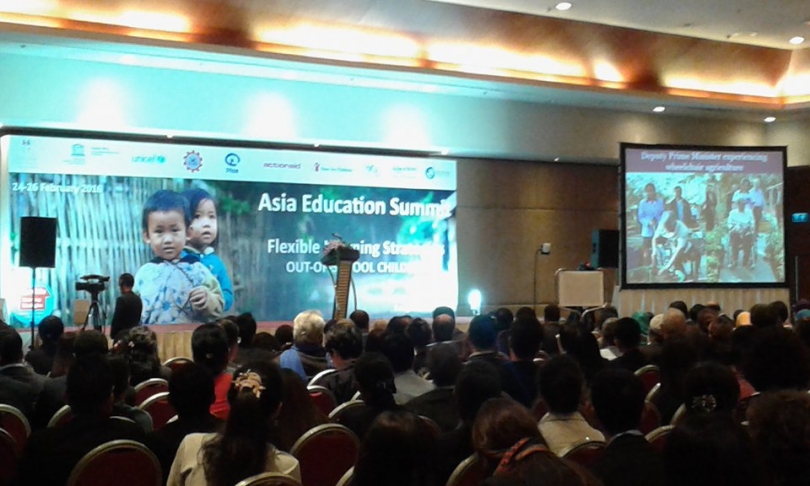Budgets ignore poor students

High number of dropouts cited for economIc woes by Unesco
UP TO 46 per cent of governments’ educational budgets have benefited just 10 per cent of children in the Asia-Pacific region, with the poor being largely ignored, the Unesco disclosed at a regional education summit in Bangkok yesterday.
Ichiro Miyazawa, a programme specialist at Unesco Bangkok, which hosted the forum, told participants that an estimated 17.3 million children in the region were out of school.
“Such problems have dragged on for 50 years,” he said. “It’s high time we pursued innovations to address these issues.”
This week, more than 550 development workers, government officials, education practitioners and private-sector representatives from 22 countries have gathered to share innovative strategies on how best to reach Asia’s millions of out-of-school children.
The three-day Asia Education Summit on Flexible Learning Strategies for Out-of-School Children will conclude tomorrow.
Nicholas Burnett, former Unesco assistant director-general for education and director of global education-monitoring reports, yesterday said primary-school dropouts had hampered Southeast Asian countries’ economic growth.
Dr Varakorn Samakoses, a former deputy education minister, said that based on 2013 Unesco information, the fact that nearly 300,000 students had dropped out of primary schools in Thailand had caused significant economic damage to the country’s economy, either directly or indirectly.
“The amount of damage is equivalent to 1-3 per cent of the country’s gross domestic product each year,” he said. Varakorn said that if the dropout problem continued to be ignored, Thailand would get stuck in the middle-income trap for at least another 25 to 30 years. He suggested that the government should develop clear-cut solutions to such problems.
Varakorn recommended setting up a real-time database to monitor individual schools’ progress of each child, and allocate a budget as well as planning education development based on the database.
“The budget management should focus on reducing educational gaps. At present, most resources have not reached disadvantaged children. Poor provinces are found to have received much smaller educational budgets than other provinces,” he said.
Varakorn moreover suggested that an earmarked tax could be used to set up an education fund to help out-of-school children. Quality Learning Foundation manager Supakorn Buasai said the agency had been trying to reach out to these children.
“Our measures include the utilisation of IT systems, budget management, monitoring, networking with various organisations and the development of policies to prevent school dropouts on a sustainable basis,” he said.
Gwang-jo Kim, director of Unesco Bangkok, said he hoped the summit would encourage all participants to tackle the challenges of the educational problems and nudge them into pursuing joint collaborations.
Karin Hulshof, director of Unicef’s Regional Office for South Asia, said she hoped participants would go back to their homelands and tell their government of the need to invest in out-of-school education. “I hope to see tangible results from the next few years,” she said.
